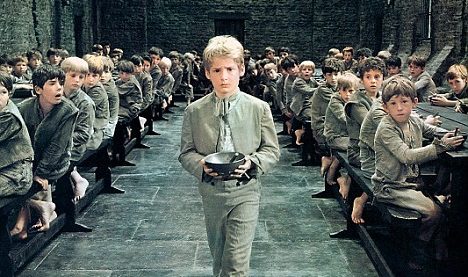As an inexorable global economy makes the world a smaller place, America’s unions have made similar strides: everything about U.S. labor is smaller in the 21st century! The number of unions, their dwindling membership — even the duration of their strikes.
A couple of weeks ago the United Auto Workers struck against General Motors, the first nationwide strike against the auto industry since 1976, when America was celebrating the 100th anniversary of its Centennial. But before we could get all misty for the union heydays of Jimmy Hoffa, Norma Rae, the Battle of Matewan and the Ludlow Massacre, the strike was settled — in just two days. Then last week, the UAW struck against Chysler, a show of solidarity that lasted seven hours. If this keeps up, Ford can look forward to work stoppage roughly the duration of a Super Bowl halftime show, although hopefully more entertaining.
And what was it that had the UAW in such a labor tizzy — what untenable issue left the union with no other recourse but to stage these truncated mini-breaks? Job security. Yes, after post-war strides in auto worker benefits that set the gold standard for modern unionism, the bar has been lowered like a limbo pole so that the best today’s union worker can expect is to keep his job.
So when GM heard the meager demands of its squeaky-wheel workers, they saw a perfect opportunity for an even trade of their $50 billion future health coverage “liability” in exchange for “guaranteed jobs.” Not wanting to appear disagreeable and miss the company picnic, the UAW agreed to accept a one-time payment to assume that enormous burden, creating the voluntary employee benefit association, dubbed “VEBA,” apparently because the acronym “SCREWED” was taken.
But let’s not make GM the bad guy! They have enough troubles, having lost 10 billion dollars and more than 50% of their stock’s value in 2005 alone, followed by another 2 billion last year. After such a dismal performance, General Motors CEO Richard Wagoner (a) boldly set his sights on a “break even” year in 2007, and (b) even “slashed” his own pay 50%… yet somehow managed to take home over $10 million in 2006, up from 8.5 million in 2005. Now that’s a job worth keeping! And he didn’t even have to give up his company-paid health care.
http://www.aflcio.org/corporatewatch/paywatch/ceou/database.cfm?tkr=GM&pg=1
http://www.forbes.com/static/pvp2005/LIRSOX2.html
But those historic losses, and a dwindling taste for giant SUVs in the face of record-high oil prices, only tell half the story, or two-thirds if you’re a stickler for math. After screwing their workers in a trade as one-sided as Jim Fregosi for Nolan Ryan, the U.S. auto industry still faces a greater, more insidious foe: foreign competition.
Let’s look at why that Axis of Automotive Evil — Toyota, Nissan, and Honda — can be so darn competitive. Is it because of their superior ingenuity and marketing genius? Do they simply make better cars? Have catchier mottos and snappier jingles? Maybe… but it also doesn’t hurt to eliminate employee health care costs from their operating expenses; because Japan, like virtually all industrialized nations and economies, offers national health care to its citizens, even the lowly worker we in the U.S. treat like the underground-dwelling laborers in Metropolis (Fritz Lang’s, not Clark Kent’s). A 50-billion-dollar head start is a pretty competitive edge in any industry.
But things are looking up for the American auto industry! Those 270,000 General Motors retirees can’t live forever; and even if they did, GM has laid off that bad debt on the UAW. Shrewd move: in its first day of trading following the ratification of the new labor contract, GM stock was up about 5%, it’s highest level since January of 2005. And with no future benefit commitments to a union workforce that now stands at just one-fifth of 1990 levels, it’s only a matter of time before General Motors regains its rightful place atop U.S business.
It’s sort of like “The Return of The King,” except Sauron won, and Frodo got cancer.
